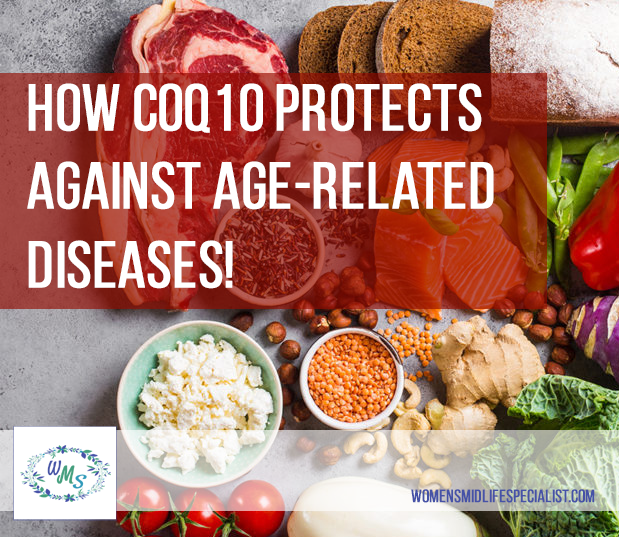How CoQ10 Protects Against Age-related Diseases!

CoQ10 is an essential nutrient present in almost every cell of the human body. The following foods also contain CoQ10:
- Oily fish
- Organ meats
- Eggs
- Nuts
- Whole grains
CoQ10 plays a vital role in energy production and DNA replication and repair. It also acts as an antioxidant, neutralizing harmful free radicals.
Several factors can lower CoQ10 levels in the body. These include:
- Aging
- Taking statins, which are cholesterol-lowering medications
- Genetic mutations that affect the production of CoQ10
- Disorders of the mitochondria, which are the parts of the cell that generate energy
CoQ10 deficiency is associated with numerous diseases, including:
- Heart disease
- Cancer
- Alzheimer’s disease
Mitochondria are responsible for powering the body’s cells. To do this, they use CoQ10 to produce the chemical adenosine triphosphate (ATP). This process is known as ATP synthesis. ATP is the primary source of energy for the body’s cells.
So How Does CoQ10 Protect Against Age-related Diseases?
Mitochondria produce free radicals during ATP synthesis.
Under normal conditions, free radicals regulate communication between cells and defend the body against infectious microbes. However, excess free radicals cause DNA damage, which can lead to:
- Inflammation
- DNA Mutations
- Tissue Damage
CoQ10 acts as an antioxidant by neutralizing free radicals. In this way, CoQ10 helps protect cells from the harmful effects of DNA damage.
Mitochondrial function decreases as the body’s CoQ10 levels naturally deplete with age.
Research suggests that mitochondrial dysfunction can contribute to age-related neurodegenerative diseases, including Alzheimer’s disease and Parkinson’s disease. These diseases are associated with free radical damage.
A 2015 study concluded that taking CoQ10 and eating a diet low in saturated fat may help protect against diseases caused by free radical damage.


Leave a comment